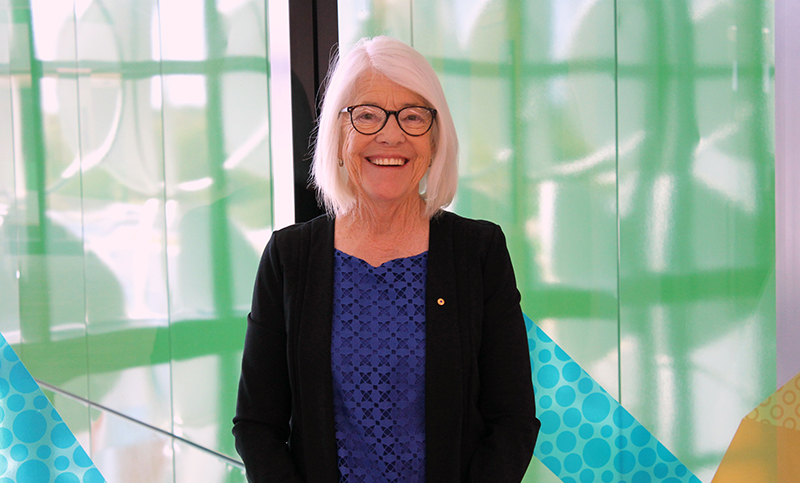Search
Research
Attitudes, perceptions, and experiences of Western Australians towards vaccine safety surveillance systems following COVID-19 vaccines: A qualitative descriptive studyConcerns regarding adverse events following immunisation are a barrier to vaccine uptake. Health professionals use vaccine safety surveillance systems (VSSSs) to monitor vaccines and inform the public of safety data. With little known about public attitudes, perceptions, and experiences with VSSS, we examined them in the context of COVID-19 vaccinations in Western Australia.
Research
Clinician perceptions of research priorities for the management of noncritically ill patients admitted to hospital with SARS-CoV-2 infectionThe changing phenotype of coronarvirus disease 2019 (COVID-19) may quickly render guideline-recommended interventions obsolete. We developed a 40-question clinician survey in consultation with the Australasian COVID-19 Trial site investigators. The survey was designed to assess clinician perceptions of the current treatment strategies and future research priorities in the management of non-critically ill patients admitted to hospital with SARS-CoV-2 infection.
Research
Widening the lens for pandemic preparedness: children must be seen and heardThe Australian and New Zealand Paediatric Infectious Diseases (ANZPID) Group of the Australasian Society for Infectious Diseases (ASID) calls for urgent consideration of the needs and voices of children in response to the COVID-19 pandemic, and in planning for future pandemics.

News & Events
Community advocate jumps on board with new COVID-19 advisory groupLike many of us, consumer and community advocate Catherine Hughes is worried about the impact of COVID-19. So she joined Australia’s first COVID-19 consumer reference group to be a voice for the community.

News & Events
Rapidly assembled advisory group to offer community take on COVID-19 researchThe speed with which research projects on the coronavirus have been put together has consumer advocates concerned that a vital voice will be missing – that of the community.
Research
Opportunities to strengthen respiratory virus surveillance systems in Australia: lessons learned from the COVID-19 responseDisease surveillance data was critical in supporting public health decisions throughout the coronavirus disease 2019 (COVID-19) pandemic. At the same time, the unprecedented circumstances of the pandemic revealed many shortcomings of surveillance systems for viral respiratory pathogens. Strengthening of surveillance systems was identified as a priority for the recently established Australian Centre for Disease Control, which represents a critical opportunity to review pre-pandemic and pandemic surveillance practices, and to decide on future priorities, during both pandemic and inter-pandemic periods.
Research
Effects of climatic factors on COVID-19 transmission in EthiopiaClimatic conditions play a key role in the transmission and pathophysiology of respiratory tract infections, either directly or indirectly. However, their impact on the COVID-19 pandemic propagation is yet to be studied.
Research
COVID-19 vaccine knowledge, attitudes, and experiences of health care workers in Perth, Western Australia: A qualitative studyHealth care workers (HCWs) faced an increased risk of Coronavirus Disease 2019 (COVID-19). Australia’s COVID-19 vaccine rollout commenced in February 2021 to priority groups, including HCWs. Given their increased risk, as well as influence on patients’ vaccine uptake, it was important that HCWs had a positive COVID-19 vaccination experience, as well as trusting the vaccine safety and efficacy data.
Research
Adverse event reports of anaphylaxis after Comirnaty and Vaxzevria COVID-19 vaccinations, Western Australia, 22 February to 30 June 2021Within the first 4 months of the Western Australian COVID-19 immunisation programme, 49 suspected anaphylaxis cases were reported to the vaccine safety surveillance system. Twelve reports met Brighton Collaboration case definition, corresponding to rates of 15.9 and 17.7 per million doses of Vaxzevria and Comirnaty administered respectively.
Research
COVID-19 and changes in the National Immunisation Program: a unique opportunity to optimise the Australian Immunisation Register (AIR)Christopher Blyth MBBS (Hons) DCH FRACP FRCPA PhD Centre Head, Wesfarmers Centre of Vaccines and Infectious Diseases; Co-Head, Infectious Diseases
